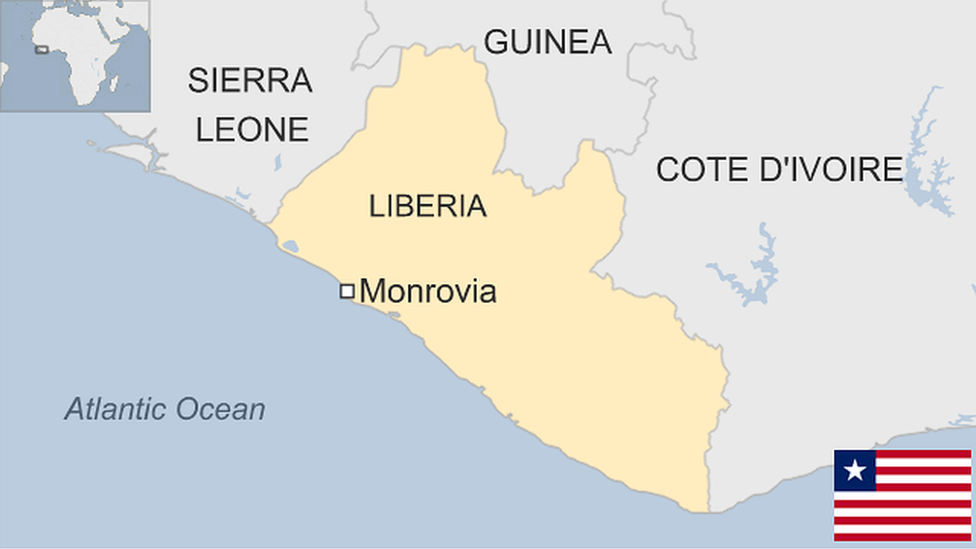Sierra Leone country profile
- Published
This page is no longer being updated. It was last updated on 27 November 2023

Sierra Leone, a country in West Africa, has a special significance in the history of the transatlantic slave trade as the departure point for thousands of west African captives. The capital, Freetown, was founded as a home for repatriated former slaves in 1787.
But the country's modern history has been overshadowed by a brutal civil war that ended in 2002 with the help of Britain, the former colonial power, and a large United Nations peacekeeping mission.
Sierra Leone has experienced substantial economic growth in recent years, although the ruinous effects of the civil war continue to be felt.
The country is also rich in diamonds and other minerals. The trade in illicit gems, known as "blood diamonds" for their role in funding conflicts, perpetuated the civil war. The government has sought to crack down on the trade.
Read more country profiles , external- Profiles by BBC Monitoring, external
REPUBLIC OF SIERRA LEONE: FACTS
Capital: Freetown
Area: 71,740 sq km
Population: 8.6 million
Languages: English, Krio
Life expectancy: 58 years (men) 61 years (women)
LEADER
President: Julius Maada Bio
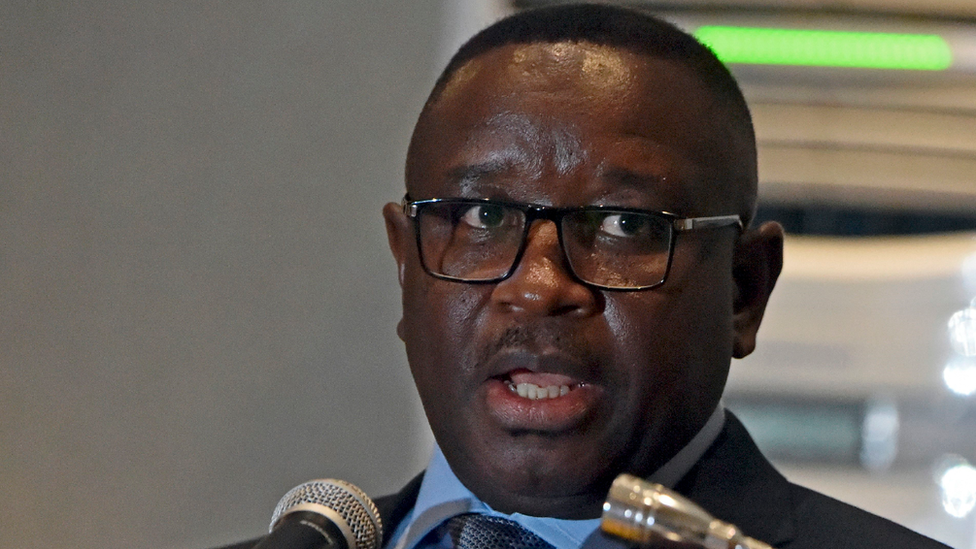
Julius Maada Bio won a second term as president in June 2023 in hotly disputed presidential elections, with the opposition claiming voting irregularities and international election observers highlighting problems with transparency in the tallying of votes.
Official figures gave Mr Bio, of the Sierra Leone People's Party, 56% of the vote. His main rival, Samura Kamara, of the All People's Congress (APC), trailed far behind with 41%.
President Bio, a retired army brigadier took part in a military coup during the country's civil war in 1992, only to overthrow the military junta itself in 1996 and pave the way for free elections that year.
The rivalry between him and Dr Kamara was a repeat of the closely fought 2018 election, which went to a second round.
The campaign took place against a backdrop of a troubled economy, the rising cost of living and concerns about national unity.
Mr Bio, who blamed the country's woes on external factors such as the coronavirus pandemic and the war in Ukraine, now has the task of solving these problems.
The election is the fifth since Sierra Leone's brutal 11-year civil war officially ended in 2002. But since then the country has had a tradition of largely peaceful, free and credible elections, according to Marcella Samba Sesay, chairperson of the non-governmental organisation National Elections Watch.
MEDIA
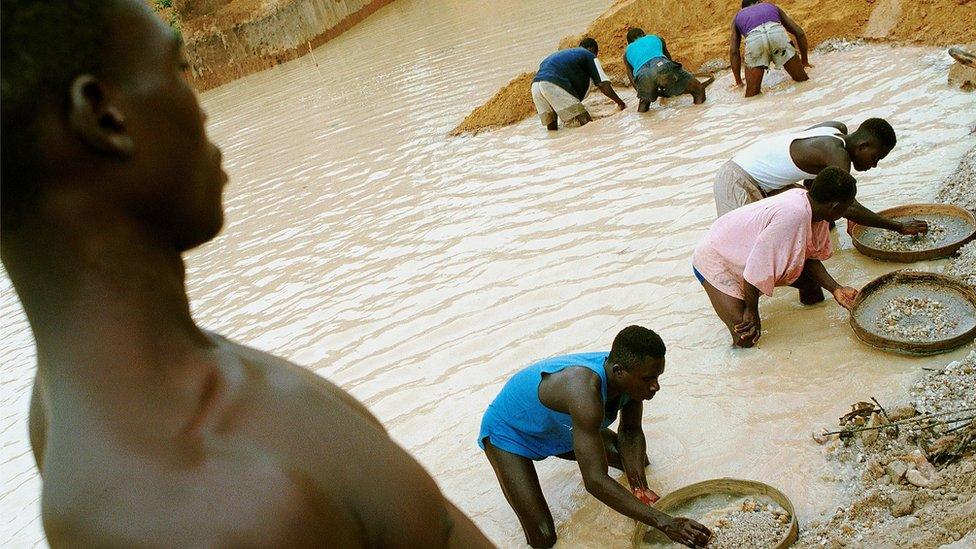
Sierra Leone's diamonds helped fund years of conflict
Media freedom in Sierra Leone has its limits; media rights monitors say high-level corruption is a taboo topic, with officials using libel laws to target errant journalists.
Challenges facing broadcasters include unreliable power supplies, poor funding and low advertising revenues. There are dozens of radio stations, most of them privately owned.
Dozens of newspapers are published in Freetown, despite low literacy levels.
TIMELINE
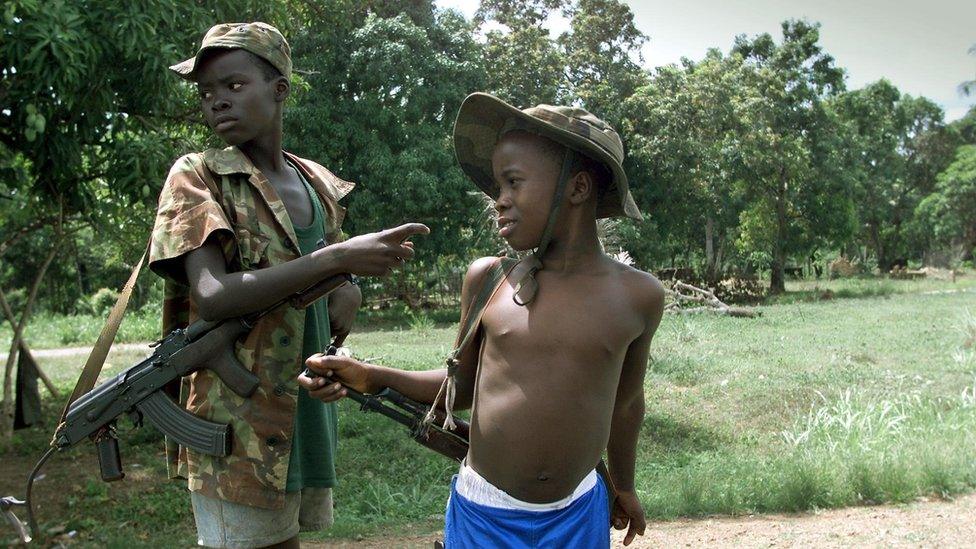
Sierra Leone suffered a lengthy civil war. Child soldiers took part in the fighting
Some key dates in Sierra Leone's history:
c 500BC onwards - Sierra Leone is settled by successive groups of peoples, though its dense tropical rainforest partially isolates the region from other West African cultures.
1462 - Portuguese explorer Pedro de Sintra maps the hills around what is now Freetown, naming them "Serra da Leoa" or "Serra Leoa" - Lioness Mountains.
1495 - Portuguese traders build a fortified trading post on the coast. They are followed by others, as as the Dutch, English and French who also establish trading stations which quickly began to primarily deal in slaves.
1787 - Following British defeat in the American Revolutionary War, thousands of Black Loyalists are settled in Canada, the West Indies or come to London. British philanthropists establish a settlement in Sierra Leone with the aim of lifting them out of poverty. British government officials are also involved, although their interest is in resettling a large group of poor citizens elsewhere away from London. This first settlement is attacked by locals, and struggles.
1792 - Black Loyalists are settled in Nova Scotia, Canada, after the American Revolution but face harsh northern winters and racial discrimination. Helped by philanthropists, nearly 1,200 decide to move to Sierra Leone and build the settlement of Freetown.
1808 - Freetown settlement becomes crown colony. With abolition of slavery, the Royal Navy begins delivered thousands of formerly enslaved Africans to Freetown, after liberating them from illegal slave ships.
1896 - Britain sets up a protectorate over the Freetown hinterland.
1961 - Sierra Leone becomes independent.
1967 - Military coup deposes Premier Siaka Stevens' government, but he returns to power the following year and becomes president in 1971, after Sierra Leone becomes a republic.
1991 - Start of civil war. Former army corporal Foday Sankoh and his Revolutionary United Front (RUF) begin campaign against President Joseph Saidu Momoh, capturing towns on border with Liberia.
1992 - President Joseph Momoh is ousted in military coup led by Captain Valentine Strasser. Under international pressure, Strasser announces plans for the first multi-party elections since 1967. In quick succession, however, the country goes through several presidents after a series of coups.
2000 - UN forces - in the country to help end the war - come under attack in the east. Several hundred UN troops are abducted. Rebels close in on Freetown. British paratroopers are sent to Freetown to evacuate British citizens and to help secure the airport for UN peacekeepers, rebel leader Foday Sankoh is captured.
2002 - Civil war ends. UN mission says disarmament of 45,000 fighters is complete. Government, UN agree to set up war crimes court. British troops leave Sierra Leone after two-year mission to help end the fighting.
2003 - Rebel leader Foday Sankoh dies of natural causes while awaiting trial for war crimes.
2004 - First local elections in more than three decades; war crimes trials begin into atrocities committed by both sides during the fighting.
2014-2016 - Sierra Leone declares a state of emergency to tackle the deadly Ebola outbreak in West Africa which persists into 2016, killing more than 11,000 people in the region.
2023 - Gunmen attack the country's main military barracks in Freetown, and free a number of inmates held in prisons amid political tensions following President Bio's contested reelection.
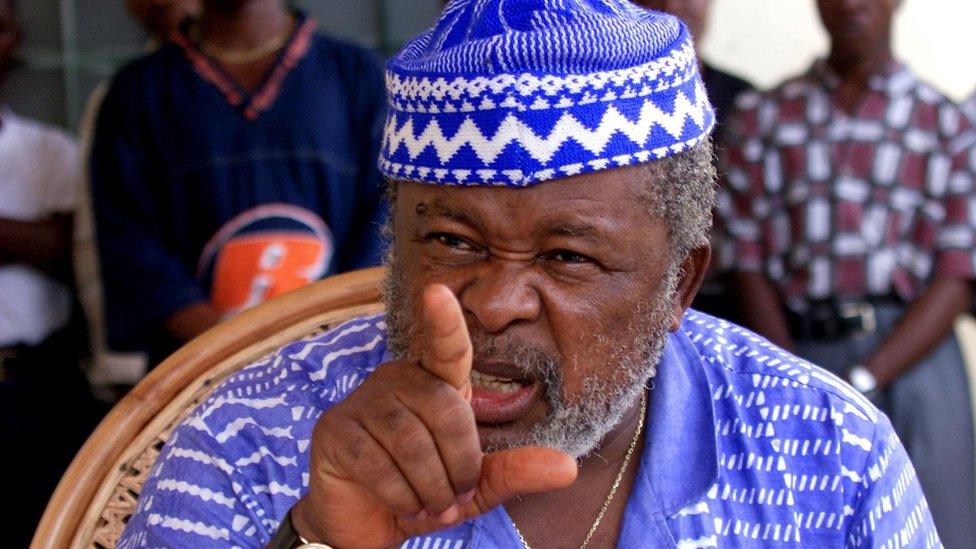
Foday Sankoh led the RUF rebel movement, which was notorious for mass rape and mutilations
Related topics
- Published26 February 2024
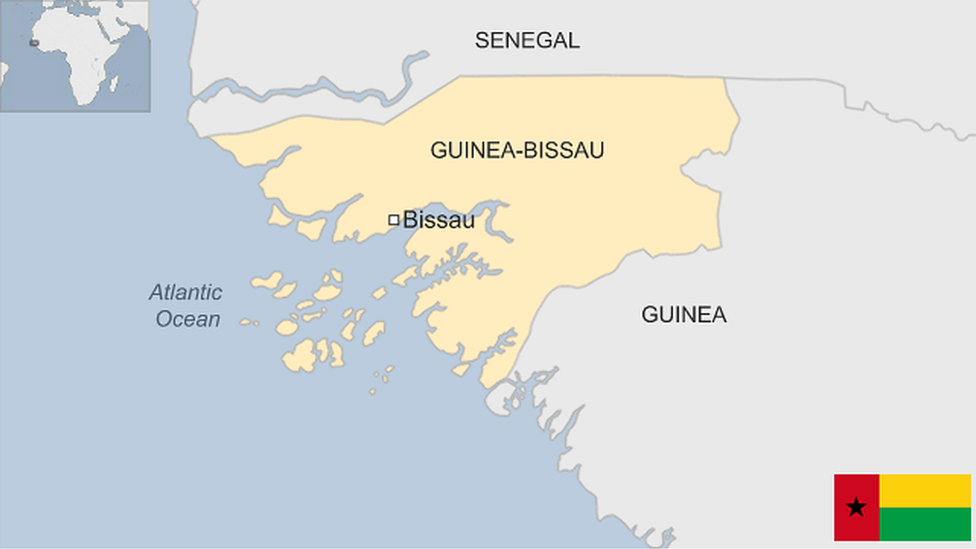
- Published14 April 2023
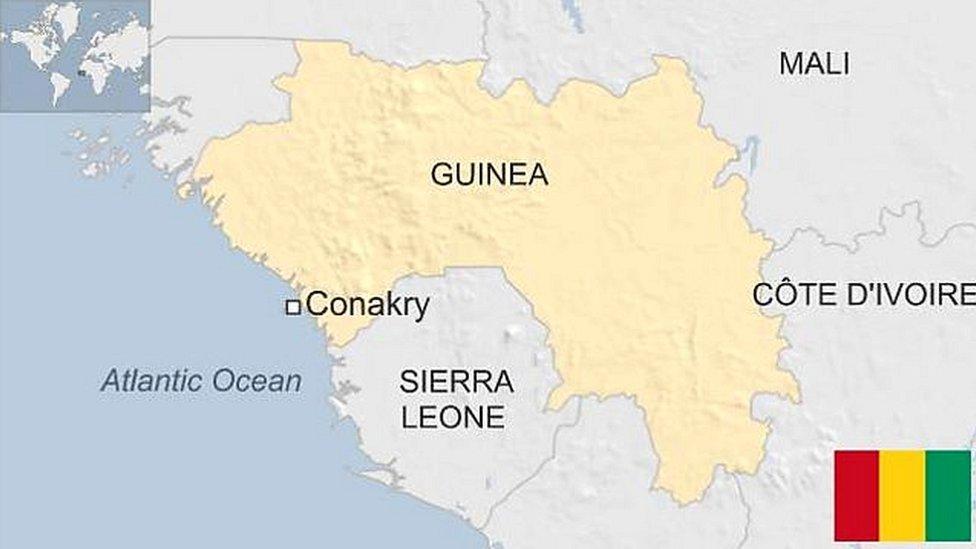
- Published28 July 2023
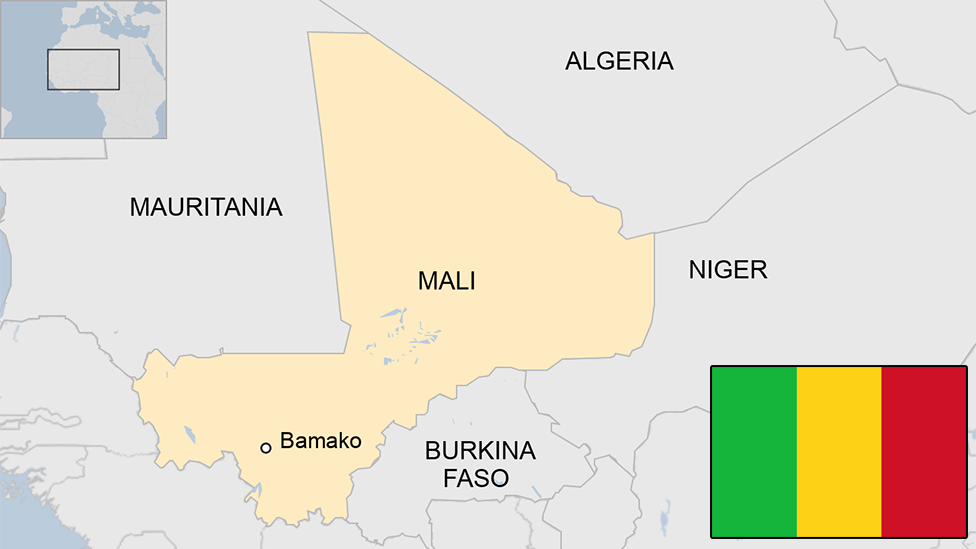
- Published24 July 2023
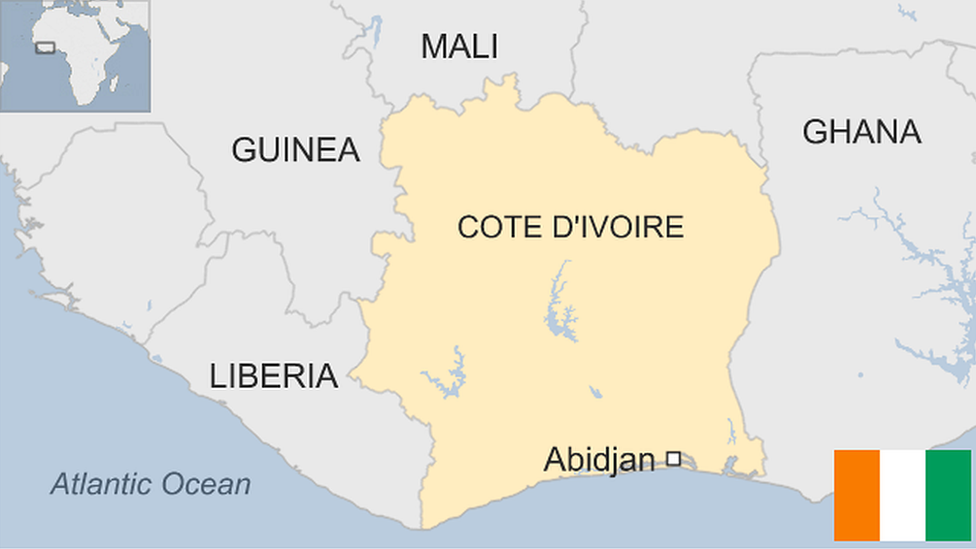
- Published13 February 2024
